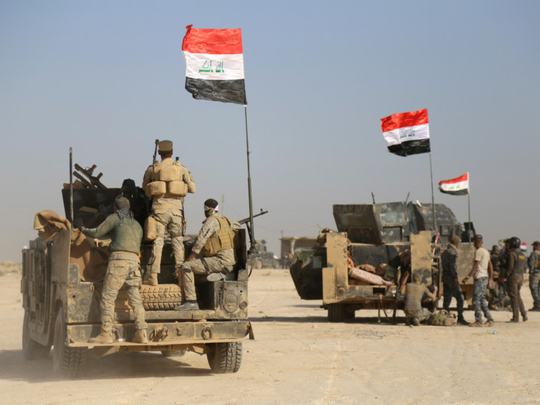
Prior to the commencement of the battle for Mosul, many events had transpired that delayed it from happening, said UAE’s Al Khaleej. “Political and sectarian matters and the interests of various parties had to be taken into consideration first. Some parties did not want a battle against Daesh [the self-proclaimed Islamic State of Iraq and the Levant], labelling their stance as sectarian. Others simply wanted to participate in the battle no matter what, while some wanted to have a say in the future of Mosul and the Ninveh Governorate, once it is liberated. The important thing is that the battle is finally taking place, with the hope that it will be the beginning of the end of terrorism, although its source needs to be snuffed out in Syria. But that’s a completely different matter,” the paper said.
The liberation of Mosul is linked to the current state of American politics and the upcoming presidential election in the United States. The fact that this inevitable battle was delayed up to this point was not a coincidence, said Saudi Arabia’s Al Yaum. “Some battles involve political goals, just like some invest in terrorism, death, chaos and destruction. The real battle, however, will be in Syria and Aleppo, but it begins in Mosul. The battle’s real success will not be banishing Daesh from these lands; rather it lies in building governmental, administrative, health and educational institutions once the battle is done, and preserving Iraqi history and civilisation and the country’s religious and sectarian diversity.”
Preliminary reports regarding the battle in Mosul indicate that every participating force has been given a specific role, said the London-based Pan-Arab paper Al Quds Al Arabi. “Despite a number of skirmishes involving the Special Forces, air strikes, the shelling, launch of missiles and thwarting some car-bomb attacks by Daesh; the entire battle gives us an impression that it is a plan drawn up on paper. It has been done in a way that conceals divisions and deep fears prevailing between the rallied forces. The fact that some parties are remaining silent, such as the Kurdistan Workers’ Party (PKK), Peshmerga and Popular Mobilisation Forces, does not mean that they do not have their own agenda.
Operations to liberate Mosul from Daesh began on Monday, and everyone hopes that the battle led by the Iraqi army will lead to success, said Egypt’s Al Ahram. “The situation requires providing safe passage for civilians escaping the city and ensuring the availability of food and water supplies for displaced families in cases of emergency. If previous battles with Daesh taught us anything, it is that this terrorist organisation will not hesitate in targeting civilians. We hope that we will soon celebrate with the Iraqis and peace-loving people the liberation of Mosul,” the paper said.
The joint offensive to recapture Iraq’s second city has been months in the making, said Lebanon’s Daily Star. “But with so many actors involved ... most important is that all their interests are aligned ... If any of the interests begin to come into conflict, it will pave the way for a far bloodier conflagration ...”




_resources1_16a31069e4e_small.jpg)






